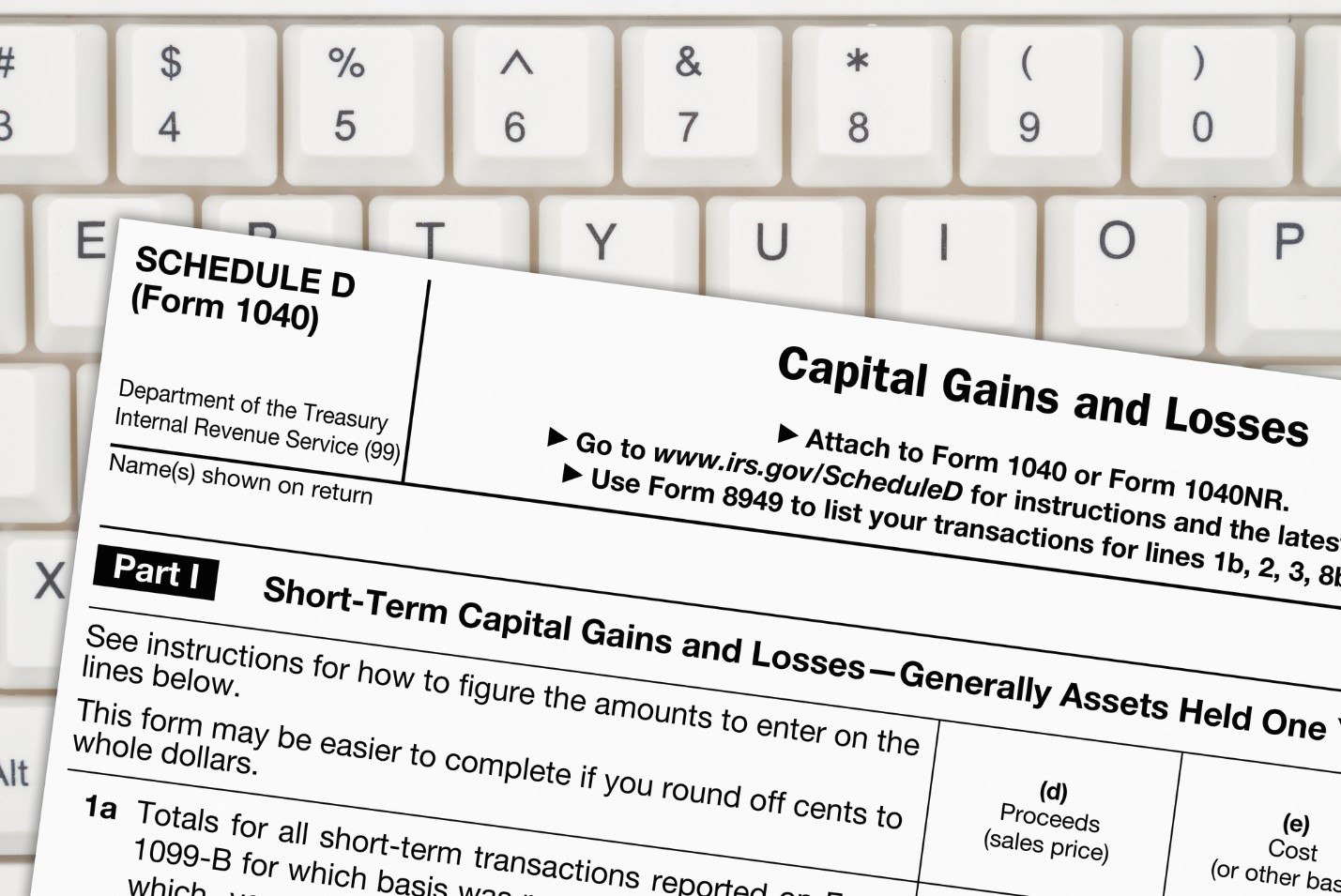Paying taxes can be stressful at the best of times. When you have a large capital gain, paying taxes becomes even more complex because you will also need to pay a capital gains tax.
At CMP, we work closely with our clients to help them minimize their tax liabilities. To save money on the capital gains tax, Utah residents must first understand how it works.
With that in mind, we have created this guide to help you navigate the regulations regarding the Utah state capital gains tax.
In this guide we will discuss the federal capital gains tax, as well as the Utah capital gains tax for 2024, the rates, and how you can minimize your tax liability.
Are you curious about the best states for capital gains tax? Keep reading; we'll let you know at the end of this post.
You may also want to read Tips for Changing Your Tax Residence in Utah

What is Capital Gains Tax?
The capital gains tax is the tax you pay when you profit from the sale of a capital asset, also known as a capital gain. The Internal Revenue Service defines a capital gain as:
Almost everything you own and use for personal or investment purposes is a capital asset. Examples include a home, personal-use items like household furnishings, and stocks or bonds held as investments. When you sell a capital asset, the difference between the adjusted basis in the asset and the amount you realized from the sale is a capital gain or a capital loss.
In most instances, the basis of the asset is the price you paid for it. In cases where an item is a business asset, and depreciation expense was claimed on the asset, you use the adjusted basis to determine whether you earned a capital gain when you sold it.

How Do Capital Gains Taxes Work?
Capital gains taxes usually affect only long-term capital gains. If you own an asset for less than a year, any profit you earn from it is taxed as ordinary income. According to the IRS, you may count the years of ownership as from “the day after the day you acquired the asset up to and including the day you disposed of the asset.” To qualify as a long-term capital gain, the assets must be held for a year and one day before they are sold.
For long-term capital gains, you pay taxes on the amount of your profit. For example, if you bought an investment property for $300,000 and sold it for $375,000, your capital gain would be $75,000. Be sure to check out our blog post: Simplifying Tax on Rental Income: A Guide for Property Owners.
Federal Capital Gains Tax
As of July 2024, on the federal level, the capital gains tax rates are as follows:
| Filing Status | 0% | 15% | 20% |
|
Single |
$0 to $47,025 |
$47,026 to $518,900 |
$518,901 or more |
|
Married filing jointly |
$0 to $94,050 |
$94,051 to $583,750 |
$583,751 or more |
|
Married filing separately |
$0 to $47,025 |
$47,026 to $291,850 |
$291,851 or more |
|
Head of household |
$0 to $63,000 |
$63,001 to $551,350 |
$551,351 or more |
Exceptions, where a capital gain may be taxed at a rate higher than 20%, include:
- Net capital gains from the sale of collectibles such as art or coins are taxed at a minimum rate of 28%.
- Taxable gain from selling section 1202 qualified small business stock is taxed at a maximum rate of 28%
- Any unrecaptured Section 1250 gain from selling Section 1250 real property is taxed at a maximum rate of 25%.
If you have questions about whether you need to pay capital gains tax on the federal level, a qualified CPA can help you calculate your liability.
Capital Gains Tax Rate in the State of Utah
How much is the capital gains tax in Utah for 2024? The good news is that the Utah state capital gains tax is simple to calculate. As of July 2024, it is 4.95%.
When required to pay a capital gains tax, Utah residents may be eligible for a 5% tax credit. The requirements for the credit are:
- The transaction must have occurred on or after January 1, 2008.
- A minimum of 70% of the capital gain must be reinvested in a qualified Utah small business corporation, within 12 months of the transaction.
- The taxpayer taking the credit must not have a previous ownership interest in the small business in question.
There is no separate form for this credit. You can simply enter the amount of your credit on TC-40A, Part 3, using code 04 on your Utah state tax return.
Capital Gains Tax Strategies
If you have sold assets, such as selling a business, that resulted in a long-term capital gain, or you expect to do so in the future, It is useful to have some capital gains tax strategies to minimize your tax liability. Here are some of our recommendations;- If you sell a home that serves as your primary residence, you may be eligible to waive up to $250,000 of capital gains if you’re single ($500,000 if you’re married and filing jointly) if you meet the ownership and use test requirements. Note that there are additional exceptions for government employees and active military service members.
- Improve your primary residence. If you make capital improvements to your home, the cost of those improvements may be added to the initial basis of your home, thus potentially reducing your capital gain when you sell the home.
- Keep your capital assets for more than a year before selling. As we mentioned above, when you own an asset for less than a year, your capital gains will be taxed at your regular income tax rate. In most cases, this will be higher than the capital gains tax rate.
- Reduce your overall taxable income. Since the capital gains tax rate increases from 15% to 20% if your income is above the lower rate threshold, it may be useful to reduce your taxable income by making pre-tax contributions to:
- An employee-sponsored or individual 401(k) plan
- A traditional IRA
- A 403(b) plan
- A 457 plan
- A 529 plan (college savings plan)
- Coverdell education savings account
- Health savings accounts
- Flexible spending accounts
- Offset your capital gains with capital losses: If you’re planning to sell stock that will result in a capital gain, you may want to consider offsetting it with the sale of stocks at a loss. Why? Because capital losses offset capital gains, which reduces or even eliminates the burden of the capital gains tax.
- Sell when your income is low: It may be a good time, if you are about to retire, or if you’ve been laid off. Remember, the capital gains tax rate you pay is based on your income. That means a lower income may translate to a lower (or even no) capital gains tax.
- Invest in a Qualified Opportunity Zone Fund: Investing in an OZ fund will defer capital gain tax until 2026 for both federal and Utah state income tax. IRC 1400Z-1 defines what types of investments will qualify. Investing in an OZ fund should be carefully considered. We recommend you contact one of the professionals at CMP to discuss your options based on your individual situation.
- The capital gains tax rate in Utah may be completely offset by the 5% tax credit. As we noted above, you’ll need to invest at least 70% of your capital gains in a Utah small business to qualify.
- Donate appreciated securities to charity: Another way to avoid capital gains tax is to donate appreciated securities to an eligible charity. You can deduct the donation itself and avoid paying taxes on your capital gains.
- If you have capital losses that total more than your capital gains: You must apply them first to offset your capital gains. Up to $3,000 of your remaining capital loss may be used to reduce your other income at your regular rate.
A skilled CPA can help you review your capital gains and other sources of income, to develop strategies that will reduce your capital gains tax liability and save you money.
The best states for capital gains taxes. Read more here.
Conclusion
The capital gains tax can be a challenge to understand, but we hope the information included here will help you minimize the amount you pay.
Need assistance with your Utah state capital gains tax or federal capital gains tax? CMP’s tax service professionals are dedicated to helping you better understand your tax options, enabling you to make better decisions for your business.

















